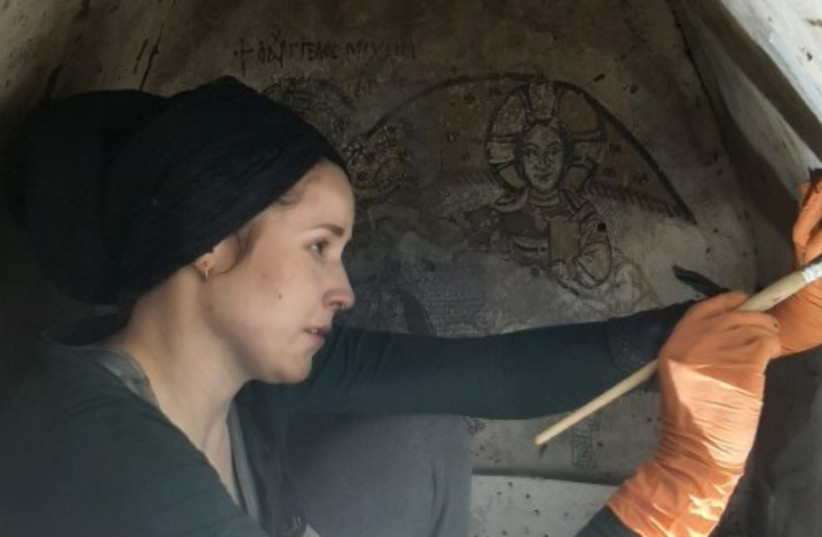An unexpected discovery in the ancient town of Old Dongola, Sudan, has divulged a set of chambers decorated with medieval Christian paintings unlike any seen before.
Archaeologists from the Centre of Mediterranean Archaeology at the University of Warsaw say the artwork, which includes depictions of the Virgin Mary and Jesus and a Nubian king, is more intimate than the typical hieratic style of Nubian art. The paintings, from the 16th to 19th century, were found at the Old Dongola medieval monastery located on the banks of the Nile.
According to the archaeologists, the Nubian ruler depicted is believed to be King David being shielded by Archangel Michael. The painting is accompanied by inscriptions calling for God to protect the city, which experts call “unique for Christian art.”

The paintings are thought to have been designed during a time of hardship for Dongola, which was an important trade city on the Nile that flourished for hundreds of years during good relations between the Muslims of Egypt and the Christians of Nubia. David's reign marked the end of the peaceful ties.
What were the depictions part of?
The team theorizes that because of the location of the rooms, adjacent to the Great Church of Jesus, it may have been a royal commemorative complex or a crypt for an important figure. They said due to the confined space and the significant height, it likely was not a home, but rather a structure with a particular function and purpose.
Excavations in Sudan
The discovery is part of a series of excavations being done for a research project called “UMMA – Urban Metamorphosis of the Community of a Medieval African capital city."
In 2021, another archeological team found thousands of Islamic tombs from the medieval era in eastern Sudan. The researchers said that Sudan is a gold mine for archeologists as it is filled with countless funerary monumental manifestations of the Nile Valley and its historical civilization.
